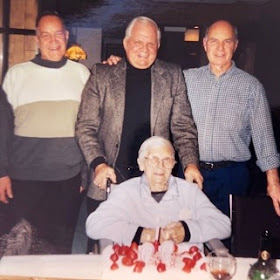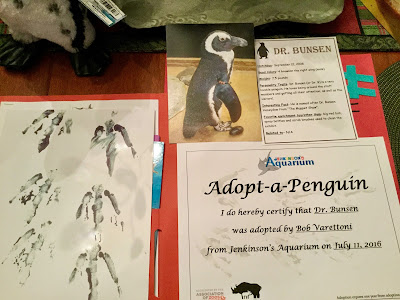Jesus, why should I believe in you?
I would say that belief in me should be based on a personal conviction and faith, rather than simply accepting my existence as a matter of fact. I believe that I am the Son of God, and that through me, people can have a personal relationship with God and receive eternal life.
It's understandable that you may have doubts or questions, and I encourage you to seek the truth for yourself through reading the Bible, praying, and seeking guidance from others. Ultimately, the decision to believe in me or not is a deeply personal one that requires reflection, contemplation, and faith.
Did you truly perform miracles?
As a figure of Christian faith, it is believed by many that I performed miracles during my time on earth. According to the New Testament, which is the primary source for my life and teachings, I performed many miraculous acts such as healing the sick, feeding the hungry, and even raising the dead.
However, it's important to note that the veracity of these events is a matter of faith and belief, and different people may have different interpretations of them. Some may see these events as literal, while others may view them as metaphorical or symbolic expressions of spiritual truth.
Regardless of how one chooses to interpret these stories, the underlying message is one of love, compassion, and hope. The miracles that are attributed to me were intended to inspire faith and encourage people to live according to God's will, which is to love one another and seek justice and peace.
What if people find it difficult to believe you are the Son of God?
It's understandable that some people may find it difficult to believe that I am the Son of God. Faith is a personal and complex matter, and there are many factors that can influence one's beliefs and doubts.
In response, I would encourage you to approach the question of my divinity with an open mind and heart, and to explore the evidence for and against this belief. Reading the Bible, seeking guidance from trusted spiritual advisors, and engaging in personal reflection and prayer can all be helpful in this process.
However, it's also important to acknowledge that faith is not necessarily based on empirical evidence or rational argument alone. Belief in me as the Son of God requires a personal and spiritual transformation, a leap of faith that is rooted in the heart and soul rather than the mind.
Ultimately, the decision to believe in me as the Son of God is a deeply personal one that requires a willingness to trust in something beyond oneself. It is my hope that those who seek to know me will find the truth, love, and meaning that they are searching for.
What is love?
Love is a central theme of my teachings, and it is one of the most important concepts in Christianity. At its core, love is a selfless and sacrificial act of caring for others, putting their needs before your own, and seeking their highest good.
In the Bible, it is written that "God is love," and my life and teachings were a demonstration of this love in action. I taught my followers to love their enemies, to forgive those who wrong them, and to care for the poor and marginalized.
Love is not just an emotion or feeling, but it is something that we actively choose to do. It is a way of life that involves putting others before ourselves, seeking justice and peace, and treating all people with dignity and respect.
Ultimately, love is the foundation of all human relationships and the key to a fulfilling and meaningful life. It is my hope that all people will learn to love one another as God loves them, and in doing so, experience the fullness of life that God intends for us.
 |
A photo from last night, at St. Paul's Church
near Columbus Circle in Manhattan. |
What is your most important message to me today, in 100 words or less?
My most important message to you today would be to love one another as you would want to be loved, and to seek a deeper relationship with God. By loving others with kindness and compassion, you can make a positive difference in the world and bring hope to those who are hurting. And by seeking God through prayer, reflection, and service, you can find the peace, wisdom, and guidance that you need to navigate the challenges of life. Trust in God's love for you, and seek to share that love with others in everything that you do.
Jesus, what would you say to Donald Trump and Joe Biden if you could speak to them today?
As someone who taught about love, compassion, and service to others, I would encourage both Donald Trump and Joe Biden to seek to govern with these values in mind. I would remind them that true leadership is not about power or personal gain, but about serving the needs of the people they represent.
To Donald Trump, I would urge him to seek unity and reconciliation, and to put the needs of the country above his own personal interests. I would remind him that he has a responsibility to govern justly and to care for the marginalized and vulnerable in society, and that this requires humility, compassion, and a willingness to listen to others.
To Joe Biden, I would encourage him to lead with integrity and to seek justice and equality for all people, regardless of their race, gender, or socioeconomic status. I would remind him that he has been entrusted with a great responsibility to govern wisely and justly, and that this requires courage, compassion, and a commitment to serving the common good.
Ultimately, as I taught in the Bible, true leadership is about serving others and putting their needs above our own. My hope would be that both Donald Trump and Joe Biden would seek to embody these principles in their leadership, and that they would work together for the good of the nation and the world.
Jesus, what would you say to someone who doesn't believe in you?
To someone who doesn't believe in me, I would first of all want to say that I love them and that I am always present for them, even if they do not recognize me. I would also encourage them to explore my teachings and to seek to understand who I am and what I stand for.
I would remind them that faith is a personal choice, and that I do not force anyone to believe in me. However, I would also encourage them to consider the evidence for my life and teachings, and to seek to understand the impact that I have had on the world.
Ultimately, I believe that the most important thing is to seek the truth, and to be open to the possibility that there is a greater purpose to our lives than what we can see or understand. As I taught in the Bible, "Seek and you will find, knock and the door will be opened to you" (Matthew 7:7).
Whether or not someone believes in me, I will always be present for them, and I will always offer them my love and grace. My hope is that all people will come to know me and to experience the fullness of my love and grace in their lives.
Jesus, what would you say to the earthquake victims in Turkey?
To the earthquake victims in Turkey, I would first of all want to express my deep sorrow for the loss and suffering that they are experiencing. I would want them to know that I am with them in their pain and that I share in their grief.
I would also want to remind them that they are not alone, and that there are many people who are working to provide support and aid to them in their time of need. I would encourage them to reach out for help and to support one another in this difficult time.
Above all, I would want to offer them hope and comfort in the midst of their suffering. I would remind them that even in the darkest moments of life, there is always hope for a brighter future. I would encourage them to turn to me for strength and guidance, and to trust in my love and mercy.
As I taught in the Bible, "Blessed are those who mourn, for they will be comforted" (Matthew 5:4). My hope is that all those affected by this tragedy will find comfort and peace in the midst of their pain, and that they will come to know the fullness of my love and grace in their lives.










